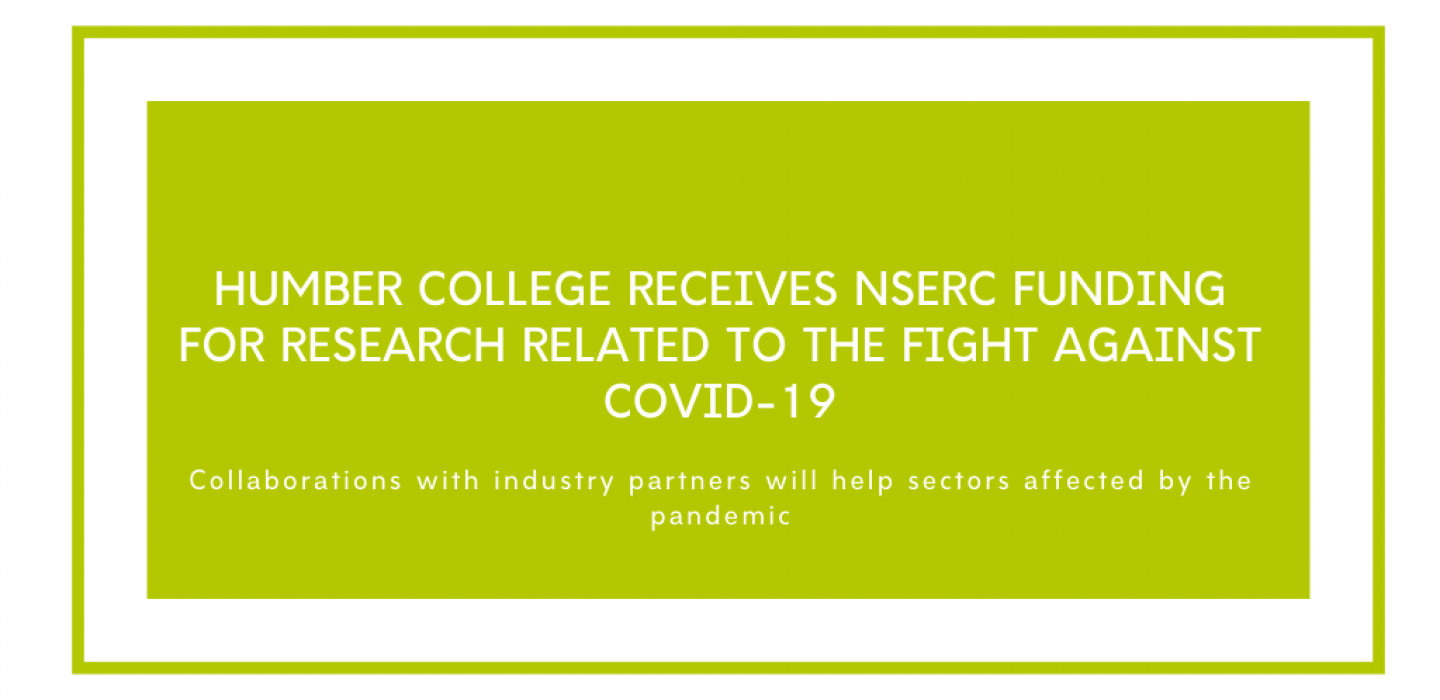Collaborations with industry partners will help sectors affected by the pandemic.
Humber College has received nearly $150,000 from the Natural Sciences and Engineering Research Council of Canada (NSERC) for two projects that will leverage expertise at the college and provide important data to help address and manage the COVID-19 outbreak.
“We welcome the NSERC funding for these projects that will provide important insights into managing COVID-19 in healthcare settings and beyond,” said Gina Antonacci, Associate Vice-president, Academic, Humber College. “These grants will also provide important real-world experiences for students who will work with faculty researchers and industry to provide solutions to the challenges our communities are currently facing.”
A collaboration with Mero involves designing and producing a universal dispenser for soap and hand sanitizer that uses IoT technology to ensure that these products are always stocked. This grant will help Mero and Humber to develop a scalable, repeatable retrofit solution to incorporate sensors into existing hand sanitizer and soap dispensers regardless of the dispenser vendor.
“Now more than ever the public understands how something as simple as hand hygiene compliance protects themselves, their loved ones and their communities from infection,” said Nathan Mah, Co-Founder, Mero. “Working with Humber College on this project will help us to bring our near market-ready product to market three times faster and will mean we can contribute to the health and well-being of Canadians sooner.”
The second project is with Intransigense Corporation and will create hospital resource prediction software. The software is designed to be used by health authorities at the municipal level to forecast what the demand will be for ventilators, masks, ward and ICU beds. The project will include an interactive web module for public healthcare administrators to prepare their resources to deal with COVID-19 cases and any future outbreaks.
“This tool can be used by administrators to predict expected visits to the hospital on a daily, weekly or monthly basis and adjust staffing, equipment needs accordingly,” said Dr. Saber Amini, Project Manager, Intransigense Corporation. “Our collaboration with Humber will help us to equip healthcare providers with the data they need to ensure patients are cared for properly and staff work in a safer environment – ultimately saving lives.”
The NSERC funding is part of a special call for proposals under the College and Community Innovation Program – Applied Research Rapid Response to COVID-19. More information can be found here.
About Humber College Institute of Technology & Advanced Learning
Humber College is focused on our students’ future. As a global leader in polytechnic education, Humber students receive in-depth theoretical learning and hands-on experience with applied research and extensive industry connections. Humber provides career-focused education to more than 33,000 full-time and 23,000 part-time and continuing education students across three campuses. A comprehensive range of credentials including honours undergraduate degrees, Ontario graduate certificates, diplomas, apprenticeships and certificates, prepare career-ready global citizens to move seamlessly from education to employment. More than 86 per cent of Humber graduates are employed within six months of completing their studies. Visit humber.ca.

We acknowledge the support of the Natural Sciences and Engineering Research Council of Canada (NSERC).
Nous remercions le Conseil de recherches en sciences naturelles et en génie du Canada (CRSNG) de son soutien.
